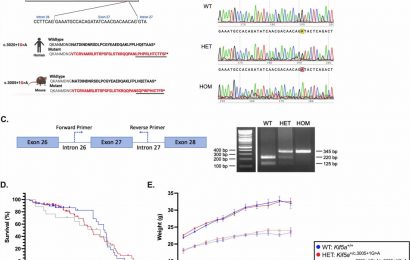The study covered in this summary was published on ResearchSquare.com as a preprint and has not yet been peer reviewed.
Key Takeaways
-
Patients with glioblastoma (GBM) who completed 12 cycles of temozolomide (TMZ) with Karnofsky performance status (KPS) at 12 cycles ≥ 80 had a longer median overall survival (OS) compared with those with KPS at 12 cycles < 80.
-
The findings of this study do not support prolonging maintenance TMZ therapy beyond 12 cycles, regardless of MGMT promoter methylation status or residual tumors.
-
Long-term maintenance TMZ therapy does not appear to negatively affect survival after tumor progression.
Why This Matters
-
Studies investigating the clinical effect of long-term TMZ therapy have produced mixed results.
-
This study evaluated the clinical effect of long-term maintenance TMZ on patients with newly diagnosed isocitrate dehydrogenase (IDH1)/2-wildtype GBM.
-
The findings suggest that patients with KPS at 12 cycles ≥ 80 could maximally benefit from the prolonged use of TMZ.
Study Design
-
The retrospective observational study included 41 patients with IDH1/2-wildtype GBM who completed 12 cycles of maintenance TMZ therapy between June 2006 and December 2019. Follow-up data were collected in May 2021.
-
The cohort was made up of 25 patients who discontinued TMZ therapy upon completing 12 cycles and were followed up until progression, and 16 patients who continued maintenance TMZ therapy beyond 12 cycles to disease progression or for a maximum of 24 cycles.
-
OS, progression-free survival (PFS), residual OS, and residual PFS were calculated using the Kaplan-Meier method and compared using the log-rank test.
-
The univariate analysis assessed the prognostic effect on residual PFS and residual OS using clinical and genetic variables whereas multivariate analyses for residual OS and residual PFS were performed using the Cox regression model.
-
Additional analyses to evaluate the effect of long-term maintenance TMZ therapy on survival time after the first tumor recurrence focused on 29 patients who had tumor progression with available clinical information.
Key Results
-
Median OS of patients who completed 12 cycles of maintenance TMZ therapy was 45.1 months, and median PFS was 25.0 months.
-
At 12 cycles, 26 patients with KPS ≥ 80 had a significantly longer median OS of 89.3 months compared with 15 patients with KPS < 80 who had a median OS of 30.7 months (P < .0001). The 5-year survival rate for patients with KPS at 12 cycles ≥ 80 was 57.0%.
-
For the 41 patients, the median residual PFS was 10.6 months and residual OS was 26.7 months.
-
In the univariate analysis, TMZ alone was significantly associated with prolonged residual PFS than combined therapy (11.3 vs 8.2 months; P = .046). Also, KPS at 12 cycles ≥ 80 was significantly associated with prolonged residual OS compared with KPS at 12 cycles < 80 (74.9 vs 15.3 months; P < .0001).
-
Results of the multivariate analyses showed that only KPS at 12 cycles ≥ 80 was significantly linked with increased residual OS (odds ratio, 0.12; 95% CI, 0.035 – 0.041; P = .0007). Residual tumor at 12 cycles, maintenance therapy regimen, maintenance TMZ therapy beyond 12 cycles, and MGMT promoter methylation status were not associated with residual PFS or OS.
-
Median survival time after first progression was 11.9 months in 29 patients who had tumor progression.
Limitations
-
The retrospective nature of the study and heterogenous maintenance therapy regimens might have affected the results.
-
The power of the survival analysis was limited by the small sample size of the cohort.
-
The use of 12 cycles of maintenance TMZ therapy might not be useful in daily practice as this is not current standard care.
Disclosures
-
None of the authors had relevant financial or nonfinancial interests to disclose.
-
This study received no commercial funding.
This is a summary of a preprint research study, “Assessment of clinical effect of long-term administration of maintenance temozolomide therapy in patients with IDH1/2-wildtype glioblastoma,” written by researchers at the National Cancer Center Hospital, Japan on ResearchSquare.com provided to you by Medscape. This study has not yet been peer reviewed. The full text of the study can be found on ResearchSquare.com.
Source: Read Full Article


